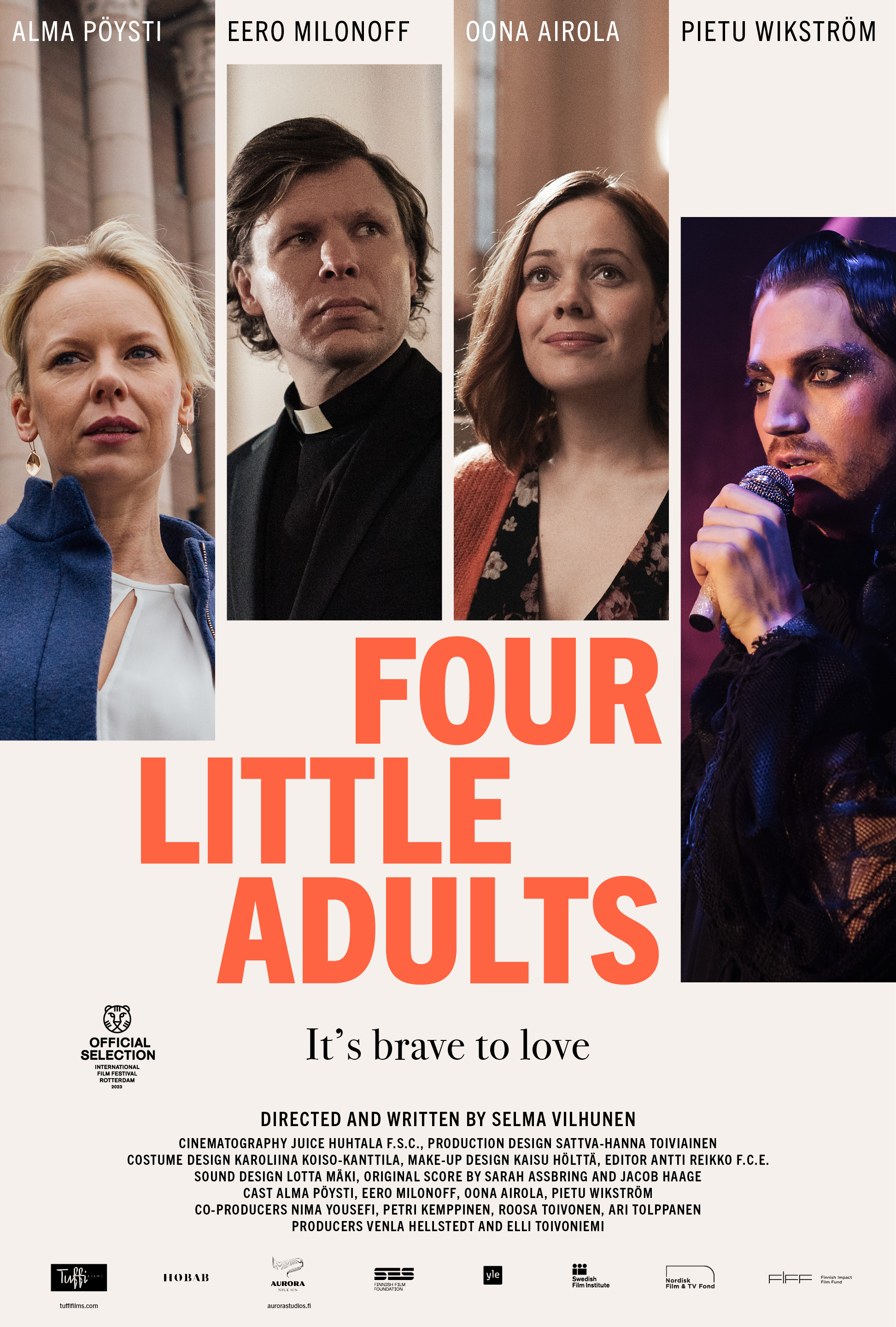
I think Four Little Adults is meant to be a comedy but it’s Finnish so I can’t be sure.
Polyamory explored through the lens of the most boring, middle-class, middle-aged white couple you ever met. And by explore, I mean, kinda just point to the fact it exists, and use all the characters and plot as vehicles to do that. Like with The Teacher, the film is so much about what the filmmaker wants to say that the characters are barely sketches, don’t feel remotely like real people, and it instead just feels like sock puppets talking at you.
The plot is this: uncomplicatedly good Equality Party politician, Juulia catches her husband Matias, the local vicar, having an affair with a single mother in his parish. In the space of a fortnight she goes from utterly heartbroken about this to deciding they should all now have a polyamorous relationship. Cue literally sitting about the kitchen table.
For her part, Juulia goes out and picks up genderqueer Miska who is half her age. I’ll pause here to say Miska’s lip sync to Lost on You is the highlight of this entire movie, and the only moment in the whole film that ripples with actual desire, despite the multiple fully nude sex scenes it has. So kudos to Pietu Wikstrom who plays Miska for that.
One of the comedy features of this film is how the adults begin to act as children as the film progress, dealing with complicated feelings by hiding under their bedcovers, climbing on each other’s lap for hugs, and sitting down in the street, back straight and kegs akimbo like a toddler. I suppose its meant to indicate this idea that we never really grow up, that our emotions are still as fragile, and that these new experiences their polyamorous relationship has brought up means they are feeling everything new, raw and intense the way little kids do as they come to terms with the world. In reality, I just saw it as saying the polyamorous relationship was infantilising, unwittingly underscoring the points made by outside characters opposed to it, who were telling them to grow up, to realise adulthood means making sacrifices and not getting everything you want. So whatever the filmmaker was trying to do with this as a metaphor, it was counterproductive.
I guess this film wants points for painting polyamory in a good light and having a happy ending. God knows there are few enough of those around. But it still uses the trope that polyamory is a response to men’s infidelity, even if the primary drive for it comes from Juulia. And it is just all round patronising and has nothing intelligent to say on the subject. It’s also just not a good movie. It’s like the filmmaker said, “I wanna make a film that shows polyamory positively” and they did that and only that.
This film isn’t really worth your time, in my opinion, other films have done what this does before and better.